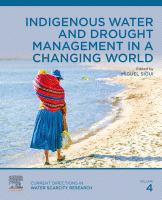Haudenosaunee Women's Water Law: Reclaiming the Sacred

Ohneganos: Co-creating an examination and analysis of Six Nations women's health. The Co-Creation of Indigenous Water Quality Tools (CCIWQT) “Ohneganos” project is a Six Nations women-led research assessment of water insecurity on ecological and human health. Lack of access to clean potable water affects most homes at Six Nations (SN), one of Canada's most populated “reserves” (Public Works Report, 201). The women research leads informed and shaped a co-creation research design, methodology, implementation, and dissemination. We considered historical context, Haudenosaunee women's responsibilities and stewardship, governance and structural causes for water crises, and Haudenosaunee laws to situate our research. Our analysis found that gender played a considerable role across surveyed Indigenous communities, with females consistently rating the cultural importance of water significantly higher than their male counterparts. The Six Nations case revealed the links between gender, water, colonial violence, and Haudenosaunee law in assessing and addressing water security and climate crisis. The intersectional team wove health, culture, spirituality, and lack of access to water, and in doing so, exemplified the need to protect source water to ensure ecosystem and human health. Moreover, the case provides a meaningful demonstration and argument for the critical importance and efficacy of community-led research. We highlight a dialogical space for Indigenous and western science, and broader academic pedagogies and priorities that led to collaborative action to assert sovereignty over bodies of water and self. We demonstrate our co-constructed development of research partnerships and work in the spirit of the Great Law of Peace and the Two-Row Wampum (Kaswentha) established by the Haudenosaunee Nation.
